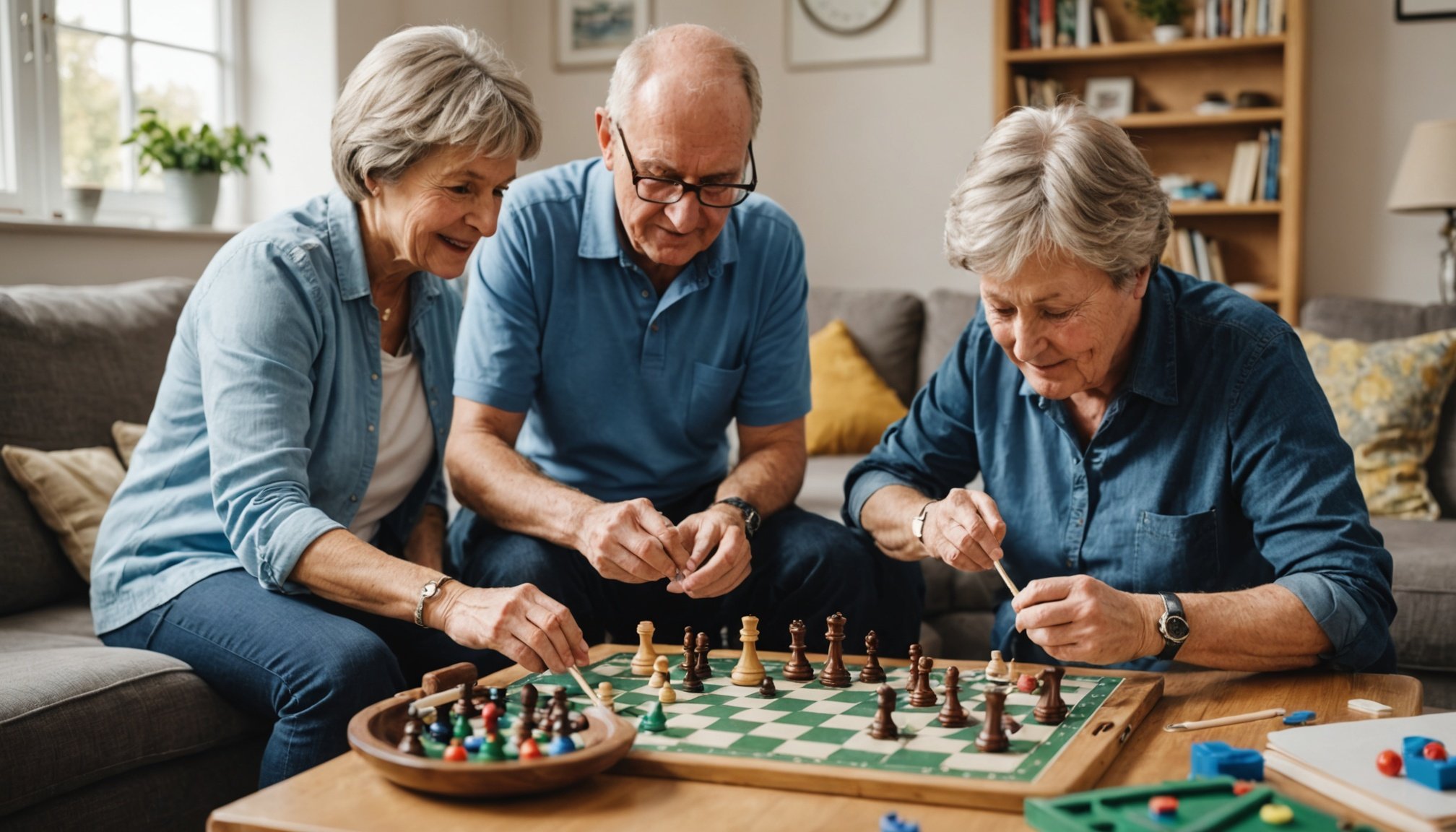The pursuit of hobbies is often seen as a mere pastime, a way to fill leisure hours. However, recent studies suggest that engaging in hobbies can have profound implications for one’s health and wellbeing. In the UK, where the pressures of modern life can lead to stress and mental health issues, it is vital to understand how dedicated activities can contribute positively to one’s overall quality of life. This article explores the multifaceted benefits of hobbies, drawing upon scholarly research, including insights from PubMed and other credible sources, to illustrate the tangible health benefits that arise from social engagement, physical activity, and community involvement.
The Link Between Hobbies and Mental Wellbeing
Embracing a hobby can significantly enhance your mental health. Engaging in enjoyable activities offers a break from daily stressors and promotes a sense of accomplishment. Studies reviewed in reputable databases like PubMed indicate that hobbies can alleviate symptoms of anxiety and depression. When you participate in activities that you love, your brain releases dopamine, a neurotransmitter associated with feelings of pleasure and satisfaction. This biochemical reaction not only uplifts your mood but also fosters resilience against life’s challenges.
Also to discover : How can parents encourage healthy eating habits in their UK households?
Moreover, hobbies can serve as an effective tool for supporting mental health, particularly in the face of loneliness. The UK has seen a rise in social isolation, especially among the elderly. By participating in community-oriented hobbies—whether it’s joining a book club, attending art classes, or engaging in team sports—you cultivate social connections that are crucial for emotional stability. These connections help mitigate feelings of isolation, thereby enhancing your overall wellbeing.
Furthermore, the cognitive aspects of engaging in hobbies should not be overlooked. Activities that require mental effort, such as puzzles, painting, or learning a musical instrument, stimulate brain functions. This stimulation is integral in maintaining cognitive health, especially in older adults. Research indicates that continuous engagement in cognitively demanding tasks can delay the onset of cognitive decline, leading to improved quality of life. Therefore, pursuing hobbies serves dual functions: it enhances mental health while also fortifying cognitive abilities.
This might interest you : What nutritional guidelines should UK citizens follow to ensure a balanced diet?
Physical Activities: A Key Component of Hobbies
Physical hobbies encompass a wide range of activities, from gardening to sports, and they play a critical role in promoting physical health. Regular engagement in these activities is linked to lower rates of chronic diseases, improved cardiovascular health, and enhanced physical fitness. For UK residents, who often face a sedentary lifestyle due to work demands and technology, incorporating active hobbies into daily routines can combat these trends.
Engaging in physical activities not only improves physical health but also has beneficial effects on mental wellbeing. Exercise has been shown to reduce stress levels, improve mood, and boost self-esteem. When individuals participate in physical hobbies, they tend to experience higher levels of satisfaction and fulfillment. This is particularly important in a society increasingly aware of the need for care in managing mental health.
Additionally, physical hobbies encourage a sense of community and social interaction. Whether it is joining a local running club or participating in group fitness classes, these activities foster social bonds. Studies indicate that social support from peers can enhance the physical benefits of exercise, leading to increased motivation and adherence to fitness goals. Thus, in engaging with physical hobbies, UK residents not only improve their health but also cultivate valuable relationships, further enhancing their sense of belonging and community.
The Role of Leisure Activities in Enhancing Life Quality
Leisure activities, which include a broad spectrum of hobbies from arts and crafts to outdoor adventures, are essential for enhancing the quality of life. These activities allow individuals to explore their interests, express creativity, and unwind from the pressures of daily life. The significance of leisure as a factor in overall wellbeing is supported by numerous studies that underscore its psychological benefits.
Involvement in leisure activities provides individuals with a sense of control and purpose. For many, dedicating time to a hobby fosters a sense of achievement, which can be particularly rewarding. This sense of accomplishment contributes positively to one’s mental health, reducing feelings of inadequacy that may arise from work or personal pressures. Furthermore, when individuals engage in leisure activities, they often find an escape from routine, leading to improved mood and reduced stress levels.
Moreover, leisure activities serve as a fertile ground for social interaction. Many hobbies, such as dancing, hiking, or joining community groups, provide opportunities to meet people with similar interests. These social interactions are essential for fostering a sense of community and belonging, particularly in a diverse society like the UK. By participating in such activities, individuals not only enrich their lives but also create networks of support that can enhance their overall wellbeing. Research indicates that people who have strong social connections through leisure activities tend to experience better mental and physical health outcomes. Therefore, prioritizing leisure activities is crucial for achieving a balanced and fulfilling life.
Community Engagement Through Hobbies
Community engagement through hobbies can transform individual lives and create a more connected society. When individuals participate in community-based activities, whether through volunteering, local sports teams, or arts initiatives, they strengthen social ties and enhance their overall wellbeing. Community involvement fosters a sense of belonging, making individuals feel valued and connected to something larger than themselves.
Research highlights that community engagement increases civic responsibility and social cohesion. When people come together for a common purpose—be it beautifying a local park or organizing a charity event—they develop mutual respect and understanding. This collective effort not only improves the local environment but also enhances mental health by reducing isolation and loneliness. As UK residents engage in communal hobbies, they contribute to a supportive network that uplifts everyone involved.
Furthermore, engaging with the community can lead to improved quality of life as individuals witness the positive impact of their contributions. The act of giving back, whether through mentoring, teaching, or simply participating in local events, provides a sense of fulfillment. Studies have shown that individuals who volunteer or participate in community activities report higher levels of happiness and lower levels of stress.
In summary, hobbies that encourage community engagement not only boost personal health but also foster a sense of collective responsibility. As people come together, they can create a more resilient society, promoting health, happiness, and social well-being for all.
In conclusion, the evidence is compelling: engaging in hobbies significantly contributes to better health outcomes for UK residents. From enhancing mental wellbeing to promoting physical health, the benefits of pursuing activities that bring joy and fulfillment cannot be overstated. As individuals immerse themselves in hobbies, they create opportunities for social interaction, community engagement, and personal growth.
As we navigate the complexities of modern life, prioritizing hobbies should be a cornerstone of our approach to health. Whether through physical activities, leisure pursuits, or community engagement, the positive effects of hobbies extend beyond the individual, enriching society as a whole. By fostering a culture of participation and support, we can enhance the quality of life for ourselves and future generations. Therefore, it is essential to encourage each other to explore and embrace the hobbies that resonate with us, as they are vital to our wellbeing and health.











